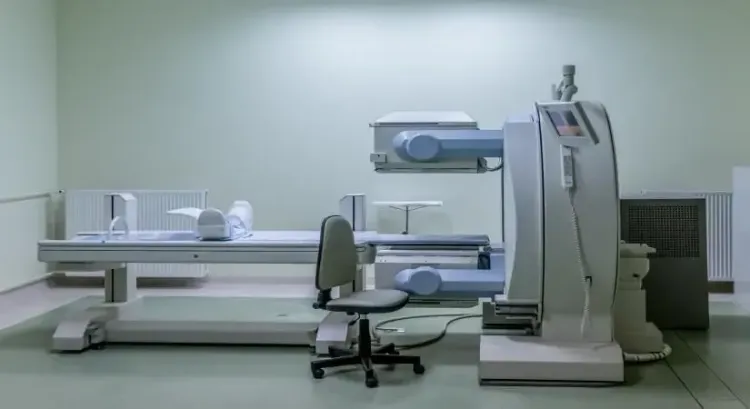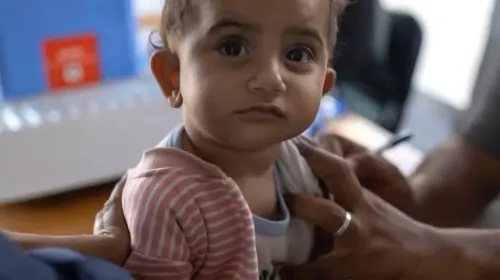Study Links Cancer Risk from CT Scan Radiation to Alcohol and Obesity

Synopsis
Key Takeaways
- CT scans increase cancer risk
- Children and infants are highly vulnerable
- 103,000 cancers predicted from 2023 scans
- CT scans account for 5% of annual cancer cases
- Reducing scans may save lives
New Delhi, April 15 (NationPress) Frequent and unnecessary exposure to computed tomography (CT) scans significantly increases the risk of developing cancers, similar to the effects of alcohol consumption and obesity, as highlighted in a recent study.
Conducted by researchers from the University of California-San Francisco (UCSF), the research indicates that radiation from CT scans contributes to 5 percent of all cancer cases each year.
Infants, children, and teenagers are particularly vulnerable, with those under one year being at the highest risk. Adults are also affected due to their higher likelihood of undergoing scans, prompting researchers to warn against excessive use and radiation exposure from CT scans.
The study identifies the most common cancers attributed to CT scan radiation in children as thyroid, lung, and breast cancers, while in adults, the risks include cancers of the lung, colon, leukaemia, bladder, and breast.
According to Rebecca Smith-Bindman, a UCSF radiologist, “CT scans can indeed save lives, but their potential dangers are frequently neglected.”
She further noted, “The research findings position CT scans alongside other major risk factors, such as alcohol consumption and excess body weight.”
The study, published in JAMA Internal Medicine, estimates that around 103,000 cancers may result from the 93 million CT scans conducted in 2023 alone.
This figure is three to four times higher than earlier estimates, according to the researchers.
“Minimizing the number of scans and lowering the radiation dose per scan could save lives,” Smith-Bindman emphasized.
CT scans are both essential and widely utilized for tumor detection and diagnosing various health conditions. However, they expose patients to ionizing radiation—a known carcinogen—and the risks associated with this technology have long been recognized.
The study is based on projected lifetime cancer risks related to radiation exposure from CT scans performed in 2023.
Researchers examined 93 million scans involving 61.5 million patients in the United States.
The frequency of scans increased with age, peaking among adults aged 60 to 69. Children represented 4.2 percent of the total scans.










